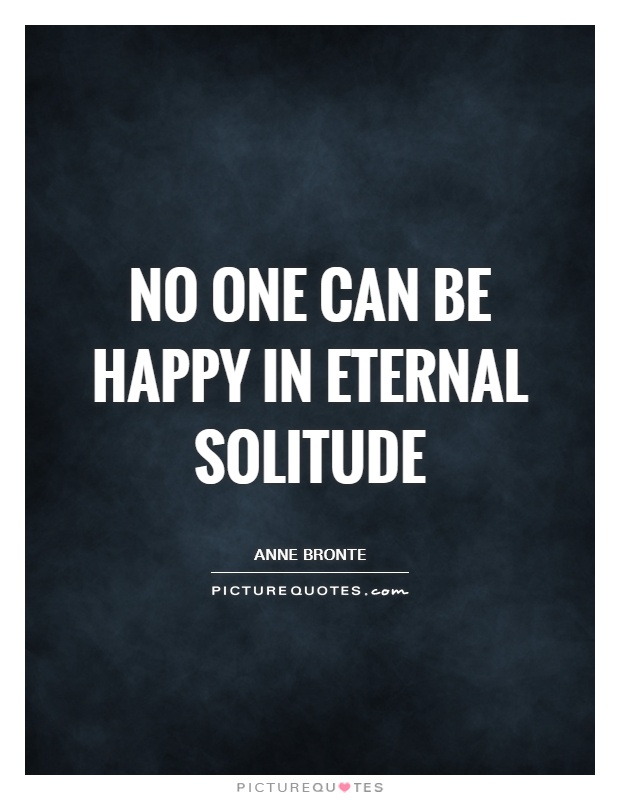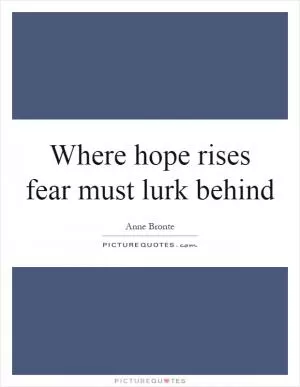No one can be happy in eternal solitude

No one can be happy in eternal solitude
Anne Bronte, the youngest of the Bronte sisters, is often overshadowed by her more famous siblings, Charlotte and Emily. However, her works, particularly her novel "The Tenant of Wildfell Hall," offer a unique perspective on themes of isolation and loneliness. In the context of Anne Bronte's writing, the idea that "no one can be happy in eternal solitude" is a recurring theme that is explored through the experiences of her characters.In "The Tenant of Wildfell Hall," the protagonist, Helen Graham, finds herself in a state of isolation and loneliness due to her abusive marriage to Arthur Huntingdon. Despite her attempts to find solace in her art and her son, Helen ultimately realizes that true happiness cannot be found in eternal solitude. It is only through her connection with Gilbert Markham that she is able to break free from her isolation and find true happiness.
Similarly, in her poem "The Captive Dove," Anne Bronte explores the theme of loneliness and the longing for companionship. The speaker of the poem, a captive dove, laments its solitary existence and yearns for the freedom to fly and be with others of its kind. The dove's desire for companionship reflects Anne Bronte's own belief that true happiness can only be found in connection with others.












 Friendship Quotes
Friendship Quotes Love Quotes
Love Quotes Life Quotes
Life Quotes Funny Quotes
Funny Quotes Motivational Quotes
Motivational Quotes Inspirational Quotes
Inspirational Quotes